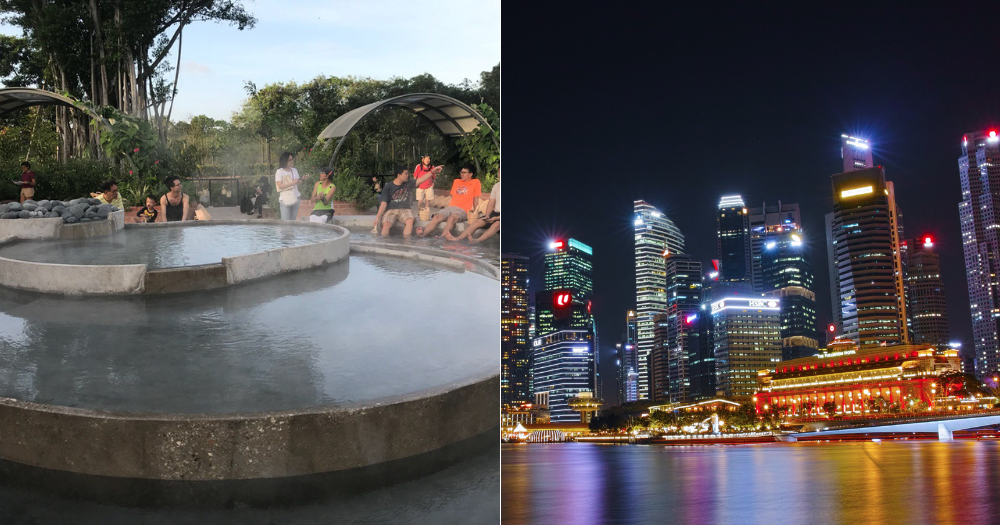What if hot springs like the one at Sembawang Hot Springs Park are found throughout Singapore, and can do more than just cook eggs or be a warm bath for your feet?
To find out, the Energy Market Authority (EMA) has issued a request for proposal on Monday (Sep. 4) to study the geothermal resource potential of Singapore's subterranean world for the purpose of power generation.
Islandwide study
The proposal call comes after local researchers at the National Technological University (NTU) concluded that the geothermal site located underneath the Admiralty Lane area could have temperatures as high as 200oC at depths of four to five kilometres.
Such temperatures can be useful for applications such as district cooling and electricity and hydrogen generation.
Building on the localised NTU study, EMA said in a press release that a "holistic study" is required to determine the overall geothermal potential and scalability of geothermal power across Singapore.
According to the EMA, such a study will provide additional data to assess geothermal energy as a potential source of renewable energy.
It will also help identify suitable locations for the potential deployment of geothermal power plants in Singapore.
Besides power generation, the data and information produced by the study will also be used to assess the potential for "subsurface geologic carbon sequestration" in Singapore, EMA shared.
The study is expected to be a "non-invasive geophysical study" looking at depths of up to 10km across the whole of Singapore.
This means the study will primarily involve the use of tools such as ground-penetrating radar to peak into the underground.
Interested parties are invited to provide their submissions by Dec. 8, 2023.
Support net zero by 2050 efforts
"As a small, resource-constrained country, Singapore has limited renewable energy options and imports almost all its energy needs," EMA explained.
"EMA is thus exploring indigenous energy options other than solar to further diversify and decarbonise Singapore’s energy sources," the energy regulator added.
EMA also said that this will support Singapore's efforts to achieve net zero emissions by 2050 while also improving the country's energy resilience.
Top image via Ashley Tan, Unsplash
If you like what you read, follow us on Facebook, Instagram, Twitter and Telegram to get the latest updates.



